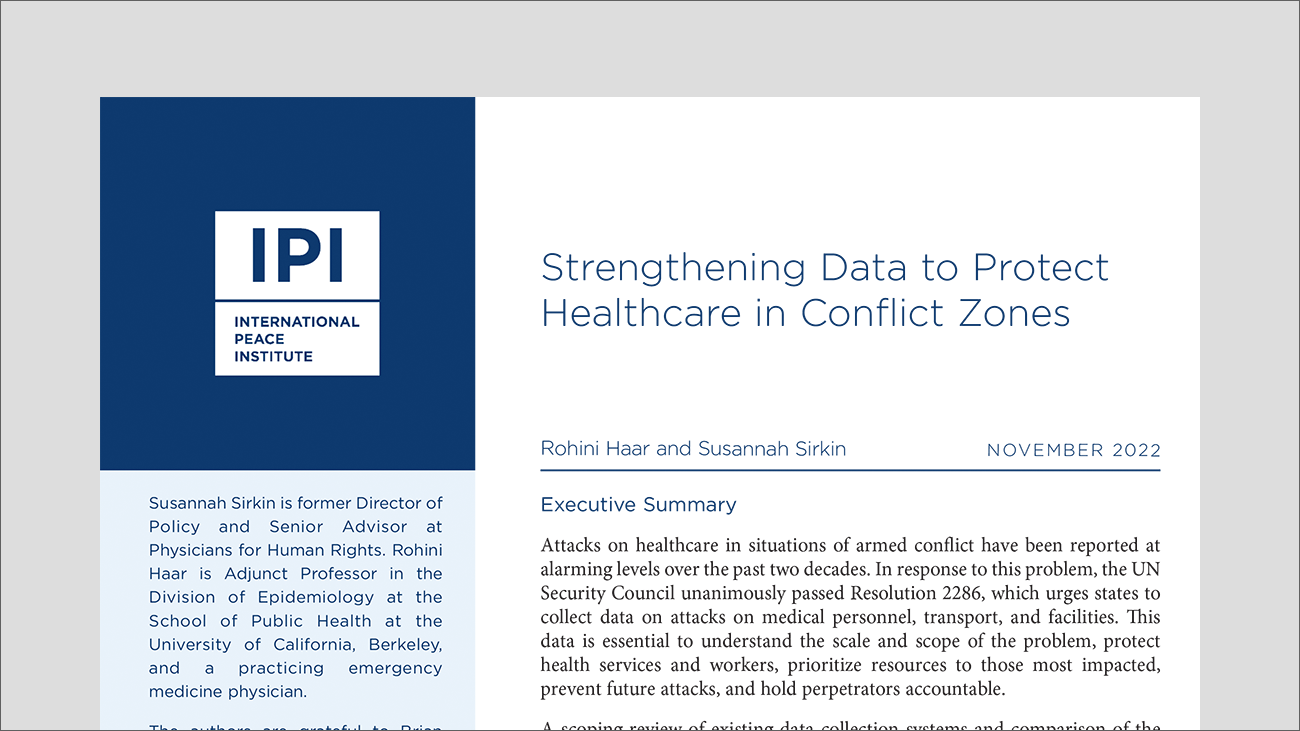
Attacks on healthcare in situations of armed conflict have been reported at alarming levels over the past two decades. In response to this problem, the UN Security Council unanimously passed Resolution 2286, which urges states to collect data on attacks on medical personnel, transport, and facilities. This data is essential to understand the scale and scope of the problem, protect health services and workers, prioritize resources to those most impacted, prevent future attacks, and hold perpetrators accountable.
This paper examines why data on threats to and attacks on healthcare in conflict is important to protection, advocacy, and investigation and how it can be improved and harmonized. It provides an overview of existing data-collection efforts—namely, the Surveillance System for Attacks on Health Care (SSA) and the database produced by the Safeguarding Health in Conflict Coalition (SHCC) in partnership with Insecurity Insight—and identifies challenges and gaps at both the policy and technical levels.
This paper concludes with the following recommendations for the World Health Organization (WHO), other UN entities, UN member states, and NGOs:
- The World Health Assembly should adopt a resolution calling on WHO to address the major concerns in the structure and operation of the SSA;
- WHO should make technical improvements to the quality and presentation of data in the SSA and be open to a range of data-collection methodologies;
- Other UN agencies, governments, and civil society organizations should take steps to improve the collection and sharing of data on attacks on healthcare to improve protection, prevention, and accountability; and
- Governments, NGOs, and other actors should increase the funding and capacity of existing data-collection initiatives.







